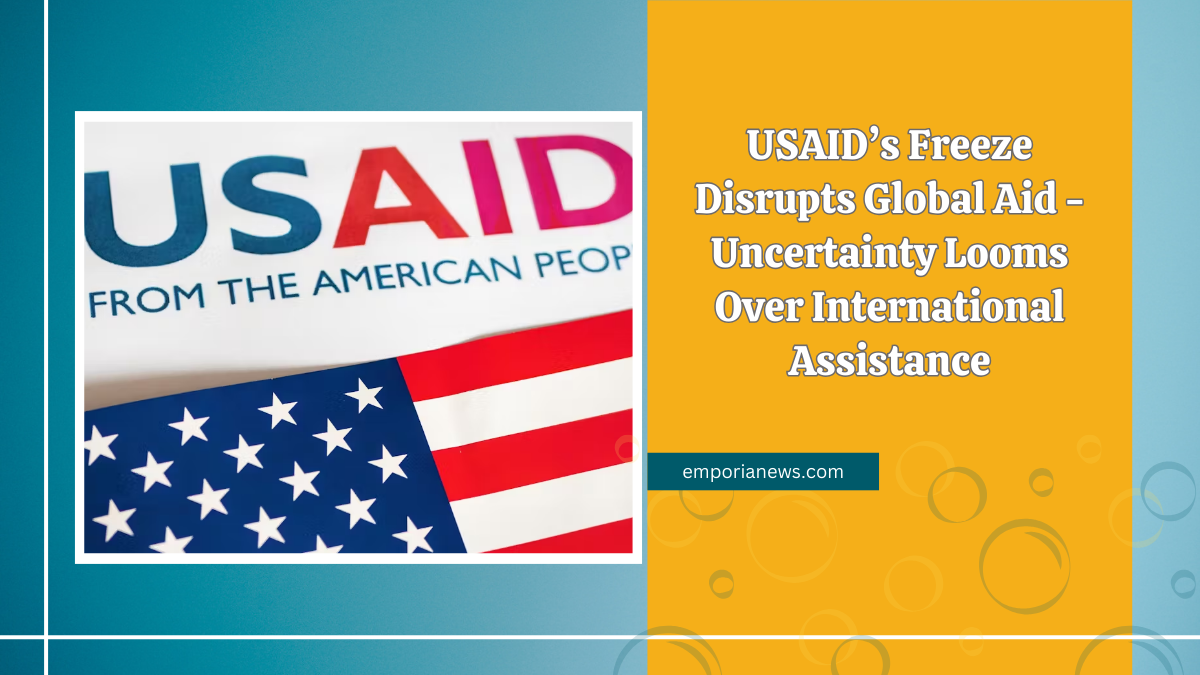The Trump administration’s decision to suspend USAID operations for 90 days and halt most international aid programs has sent shockwaves through the humanitarian sector.
This abrupt move has raised concerns worldwide, potentially destabilizing vulnerable nations and stalling critical progress in healthcare, economic development, and human rights.
Established in 1961, USAID has played a pivotal role in delivering humanitarian assistance across 130 countries, addressing emergencies, fostering economic growth, and improving global health outcomes.
Its sudden suspension raises a pressing concern: Who will step in to fill the void left by one of the world’s largest aid agencies?
Consequences of USAID’s Funding Cuts
If USAID remains inactive, the annual loss of $40 billion in international aid will have devastating consequences across several key sectors:
1. Humanitarian Relief & Food Security
Countries like Yemen, South Sudan, and Syria, where millions depend on international food aid and disaster relief, will face extreme hardships. The reduction in aid funding will likely lead to:
- Severe food shortages
- A collapse in health intervention programs
- Worsening conditions in conflict zones
2. Public Health & Disease Prevention
Vital global health programs, such as those addressing HIV/AIDS treatment, maternal healthcare, and immunization, are at risk.
The suspension of the President’s Emergency Plan for AIDS Relief (PEPFAR) alone would leave 21 million people without essential treatment, reversing years of progress.
According to Pio Smith, UNFPA’s Asia-Pacific Regional Director, in Afghanistan, the absence of US aid could result in:
- 1,200 maternal deaths between 2025 and 2028
- 109,000 unintended pregnancies in the same period
- A rise in infectious diseases across sub-Saharan Africa and Southeast Asia
3. Economic Development & Employment
USAID provides microcredit and financial support to thousands of small businesses worldwide. Without its funding:
- Job opportunities will decline
- Economic growth in developing countries will slow
- Over 10,000 USAID employees worldwide face an uncertain future
4. Democracy & Human Rights
Programs supporting education, gender equality, and civil rights will suffer. The suspension of USAID affects:
- Girls’ education programs
- Support for marginalized communities
- Efforts to strengthen democratic institutions in fragile states
USAID’s Global Impact in Numbers
| Sector | Key Impact of USAID’s Withdrawal |
|---|---|
| Humanitarian Aid | Food shortages, health crises, worsened disaster relief |
| Public Health | 21 million lose HIV/AIDS treatment, rise in maternal deaths |
| Economic Growth | Job losses, reduced business funding, economic slowdown |
| Democracy & Rights | Decline in gender equality, weakened civil society |
How Effective Is USAID?
USAID’s approach to foreign aid has not always met global aid effectiveness standards, as outlined in the 2005 Paris Declaration. The five key principles guiding international aid include:
- Ownership – Developing nations should lead their own economic and social strategies.
- Alignment – Aid should align with local government priorities and utilize local systems.
- Harmonization – Donor efforts should be coordinated to avoid inefficiency.
- Results-Oriented Management – Aid must be measurable and impactful.
- Mutual Accountability – Both donors and recipients should be transparent in aid usage.
While USAID has often prioritized U.S. strategic interests, its vast funding and global reach make it difficult to replace.
The Future of International Aid
Beyond discussions about foreign aid effectiveness, USAID’s suspension signals a major geopolitical shift. The U.S. is stepping back from its long-standing leadership role, creating an urgent need for global cooperation.
If alternative funding sources are not secured quickly, developing countries will face severe setbacks in healthcare, education, food security, and human rights.
The real question is not just who will replace USAID, but whether the world is prepared to take collective responsibility for humanitarian aid.
FAQs
What is USAID’s primary function?
USAID provides humanitarian aid, economic support, and global health initiatives across 130 countries.
Why is USAID’s suspension concerning?
The loss of $40 billion in aid annually affects food security, public health, economic growth, and democracy initiatives worldwide.
Which countries will be most affected?
Yemen, South Sudan, Syria, Afghanistan, and sub-Saharan Africa will face extreme hardships in food security and healthcare.




